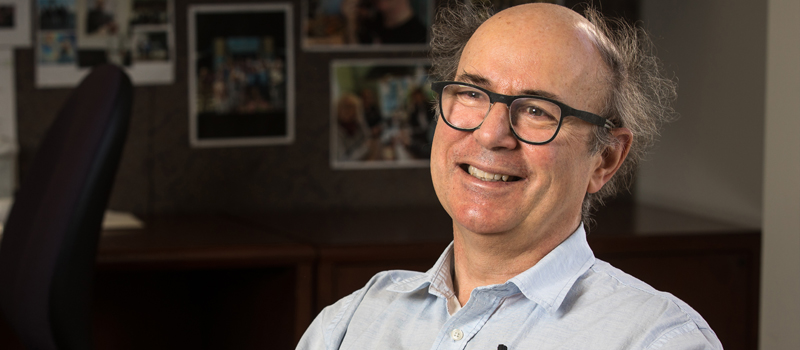
Frank Wilczek
Wilczek shared the 2004 Nobel Prize in Physics with David Gross and H. David Politzer for their discovery of asymptotic freedom in the theory of the strong interaction. This theory, which addresses how quarks interact, is key to the interpretation of almost all experimental studies involving modern particle accelerators. Wilczek is a professor in the Department of Physics in The College of Liberal Arts and Sciences. He’s worked on an unusually wide variety of topics, ranging across condensed matter physics, astrophysics and particle physics. He’s helped reveal and develop axions, anyons, asymptotic freedom, the color superconducting phases of quark matter and other aspects of quantum field theory. He came to ASU from the Massachusetts Institute of Technology, where he was the Herman Feshback Professor of Physics. He was named a MacArthur Fellow in 1982 and is a member of the American Academy of Arts and Sciences, the American Philosophical Society, and National Academy of Sciences. He received his BS from the University of Chicago, his MA and PhD from Princeton University.